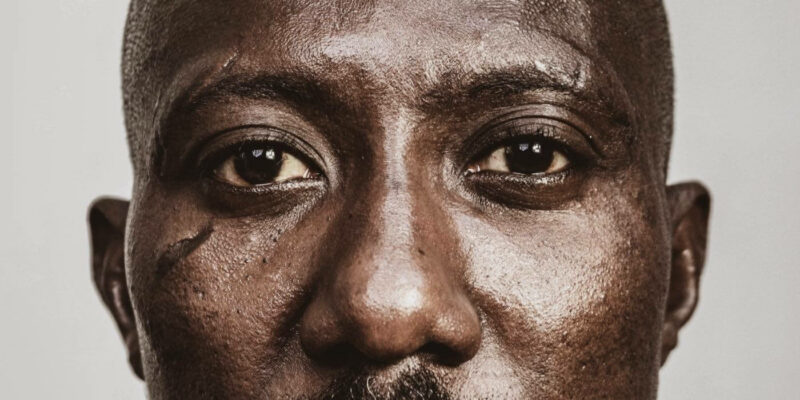I’m a psychologist who specializes in anxiety. And the single biggest reason I see people continue to struggle with anxiety is that they don’t understand it.
More specifically:
The biggest problem for people with anxiety is usually their mistaken beliefs about the nature of anxiety itself.
If you want to finally get a handle on your anxiety, it’s important to unlearn all the popular but misguided misconceptions you’ve heard about anxiety.
Because when you misunderstand what anxiety really is and how it actually works, you end up thinking and behaving in ways that unintentionally make it stronger.
In the rest of this article, I’ll walk you through four of the most common anxiety myths out there. I’ll try to explain why they’re wrong and then give you a better way to think about anxiety going forward.
1. Anxiety is dangerous
Most people who struggle with anxiety have the incorrect (though understandable) belief that anxiety is bad—like some kind of invading bacteria or faulty circuit in their brain.
But just because something feels bad doesn’t mean it is bad.
For example:
- Muscle soreness after a good workout feels bad, but it’s actually a good thing—it means your muscles are growing and strengthening.
- Pain when touching a hot pan on the stove feels bad, but it’s actually a good thing—it’s a signal to your brain to move your hand quickly in order to avoid the real enemy: tissue damage.
Well, anxiety falls into the same category as muscle soreness and nerve pain in that it feels bad but isn’t actually dangerous.
See, anxiety is just a form of inaccurate or misguided fear. And like all uncomfortable emotions, while sometimes painful and scary, it can’t hurt you directly.
Even the physical symptoms that go along with fear and anxiety—increased heart rate, chest tightness, lightheadedness, etc.—are not dangerous. In fact, they’re not even abnormal:
- At the peak of the most intense panic attack, your heart rate is similar to what it would be under moderate exercise.
- The chest tightness that comes from anxiety is actually just muscle tension in your chest—similar to how you’d feel after doing push ups for the first time in a while.
- Lightheadedness during anxiety is the result of a moderate shift in oxygen allocation toward your extremities and away from your head—a normal function of the sympathetic nervous system.
See, all the “symptoms” of anxiety are normal effects of your body going into fight or flight mode because—accurately or not—your brain believes you’re in danger…
- Respiratory rate increases to bring more oxygen into your system.
- Heart rate increases to quickly distribute that oxygen to your muscles (oxygen + glucose = muscle fuel).
- Muscles contract to prepare you to take action (think sprinter on the blocks before a race).
- Blood and oxygen get reallocated away from your gut (digestion can wait) and toward your extremities (more useful for dealing with threats), leading to the sensation of knots or butterflies in your stomach.
The symptoms of anxiety don’t mean something’s wrong or broken. They mean your body is doing exactly what it’s supposed to be doing—even if the initial assessment of danger was misguided.
Where people really get into trouble with anxiety is that they get anxious about being anxious!
- They worry about the fact that they’re worrying so much—which leads their mind to produce more worries.
- They catastrophize about the physical effects of anxiety—which leads the mind to rev up their fight or flight response even more.
- They worry that other people will notice them feeling anxious—which makes them more self-conscious and anxious.
In other words:
While uncomfortable, anxiety itself is not directly dangerous.
Of course, that doesn’t mean there aren’t indirect and long-term risks associated with anxiety. Chronic anxiety can lead to chronic stress, for example, which is associated with a variety of poor outcomes long-term.
But here’s the key insight about anxiety you need to know:
Worrying about the dangers of anxiety itself is the very thing that leads to long-term anxiety and the potential risks it confers.
On the other hand, when you stop worrying about your anxiety and learn to accept it, its power quickly diminishes.
2. You need to understand the origin of your anxiety
One of the biggest misconceptions about anxiety is that it’s necessary to understand its origins in your life in order to deal with it effectively.
For example, I had a client once who came to see me because she was having panic attacks anytime she drove on the freeway. She told me that the origins of her panic were in her childhood and her father’s habit of driving while intoxicated. And she hoped that by exploring these childhood memories together we would be able to free her from her panic attacks.
Now, it’s not hard to see how a child might develop some significant driving anxiety as a result of being driven around by an intoxicated parent. So my client’s ideas about how to resolve her anxiety were understandable.
But as I tried to explain over the course of a few sessions, the way out of her driving anxiety was going to have very little to do with her past and everything to do with her present.
Because here’s the thing:
The original cause of anxiety is rarely the maintaining cause.
In my client’s case, it’s very possible that, as a result of her father’s drunk driving, she developed a habit of worrying a lot while driving. But when you think about it, her father wasn’t causing her driving anxiety now as a 45-year-old woman. What was causing her driving anxiety and panic now was the habit of worrying about her own anxiety while driving!
At my client’s request, we spent weeks and weeks exploring every nuance of her past and memories about her father and his drinking and driving. And while there were some interesting tidbits to be gleaned, my client’s driving anxiety and panic persisted.
No matter how much insight she got into the origins of her anxiety, the habit of worrying while driving persisted, and along with it, her panic attacks.
And the reason was straightforward: While her father’s drunk driving may have been the initial cause or trigger for her driving anxiety, it was her habit of worrying and catastrophizing in the present that was maintaining it.
This meant that we could explore her past until both of us were blue in the face, but until we took care of the habits in the present that were maintaining her anxiety, she would continue to have panic attacks while driving.
(Happy Note: Eventually we did address her worry habiot while driving and within a couple mon ths she was panic free!)
If you really want to free yourself from anxiety, it’s your present, not your past, that holds the key.
There’s nothing wrong with exploring your past and trying to understand how it’s shaped who you are today.
But if you’re serious about feeling less anxious, you need to understand the habits that are maintaining it in the present and address those head-on.
3. People with anxiety should avoid stressful situations and use lots of coping strategies to relax
Not only is this incorrect, it’s actually the exact opposite of what people with anxiety need to do.
All forms of anxiety boil down to a pretty simple confusion:
Your brain thinks something is dangerous when it isn’t.
A few examples to illustrate:
- In panic, your brain thinks your physical symptoms of anxiety are dangerous. So you end up worrying and catastrophizing about the fact that you’re anxious and end up in a panic attack.
- In generalized anxiety, your brain thinks that basically everything is dangerous and that if you worry enough, you’ll stay safe (of course worrying doesn’t keep you safe, but it does keep you anxious!)
- In social anxiety, your brain thinks other people’s opinions of you are dangerous. So you end up worrying a lot about what other people think, which doesn’t solve anything but… you guessed it, keeps you anxious.
But no matter what particular form of anxiety you struggle with, the one thing that everybody with anxiety shares is, they’re afraid of their anxiety itself.
Of course, this is understandable since anxiety does indeed feel bad. Which means that our natural reaction to anxiety is to try and make it go away, usually by distracting ourselves from it or trying to eliminate it entirely:
- You feel nervous before a big presentation, so you close your eyes and go to your happy place in hopes of calming down.
- You feel anxious during a conversation with a new person at a cocktail party, so you make up an excuse to ditch the conversation and go take a smoke break out back.
Nothing could be more natural than trying to relax when you’re feeling anxious. Unfortunately, nothing could be more counterproductive either.
As we discussed in #1 above, just because something feels bad doesn’t mean it is bad or is dangerous—anxiety included.
But if you get yourself in the habit of treating your anxiety like a threat and a danger by trying to “fix” it or run away from it, you’re teaching your brain to see your own anxiety as a threat.
This means that, while your coping skills might give you a little momentary relief, you’re actually increasing your anxiety in the long run.
Think about it:
- If you whip out a coping skill in order to relax every time you feel anxious, you’re telling your brain anxiety is dangerous and you can’t handle having it.
- This means that your mind is going to be even more sensitive to and on the lookout for anxiety in the future, and therefore your odds of even relatively small things making you anxious go up.
- What’s more, as soon as you do start to feel anxious, your tendency to worry and avoid is going to be stronger, which means you send an even stronger signal to your brain that anxiety is bad and dangerous.
- And all the while, your levels of anxiety go up and up and up.
It’s a vicious cycle: The more you try and cope with your anxiety, the more your brain learns to fear anxiety itself.
The alternative is to learn to accept your anxiety.
The only way to genuinely lower your anxiety long-term is to teach your brain that anxiety is perfectly safe no matter how uncomfortable it is.
And how do you do that? By approaching your anxiety rather than avoiding it or trying to make it go away.
If you want to be free from anxiety you must be willing to have it.
Because it’s only by learning to tolerate your anxiety and live with it that you prove to your brain that anxiety isn’t dangerous.
4. Worry and anxiety are the same thing
Probably the most basic myth about anxiety that people believe is this:
That anxiety and worry are the same thing.
In fact, they are completely different! And if you want to genuinely free yourself from anxiety, it’s crucial to understand this difference.
The key point to understand is that worry is a thought (or series of thoughts) while anxiety is an emotion.
Examples of worry:
- Oh my God, what if he thought I was insulting him with that last comment?
- I’ll never get that promotion…
- My chest feels funny… I’m probably having a heart attack
Examples of anxiety:
- Feeling nervous before a big performance
- Feeling terrified that you’re going to have a panic attack
- Feeling on-edge in a room full of new people
This distinction between worry as a form of thinking and anxiety as an emotion is crucial for one simple reason…
You can control your thinking but you can’t control your emotions.
As a form of thinking, worry is something that you can exert control over. Hard as it is sometimes, it is possible to stop worrying and redirect your attention and thinking onto something else.
But you can’t directly control your emotions, anxiety included. You can’t just decide to feel less anxious or more confident any more than you can decide to feel happier or less sad.
You can only change your emotions indirectly, primarily by changing how you think.
See, most people start to feel anxious and try to make their anxiety go away. But this backfires spectacularly and only serves to make you afraid of your own anxiety!
On the other hand, people tend to ignore their worrying because it feels like something they can’t control. But here’s the thing…
Controlling your worry is the only way to control your anxiety.
Ironically, the best way to free yourself from anxiety is to learn to let go of your desire to control your anxiety and instead practice taking control over your worry.





19 Comments
Add YoursThe challenge for me has been that while I learned a long time ago that anxiety won’t do me any physical harm, it can affect my performance. And insofar as poor performance is what I’m anxious about, it’s hard to break the cycle. It sounds plausible that if you’re focused on trying to find coping tools for anxiety then you’re only teaching yourself to fear it. But if someone came along tomorrow and told me that knowing I had some coping tools that would let me address anxiety when I feel would keep me from worrying about getting anxious, that would seem plausible, too.
Good points here Dale. Have you ever heard of the Yerkes Dodson law? basically, it says that there’s actually an optimal “Goldilocks” level of stress/anxiety when it comes to optimal performance. https://en.wikipedia.org/wiki/Yerkes–Dodson_law
Thanks Nick this is great and helpful. I wonder if having the hormones released all day everyday is potentially damaging to the body but perhaps not.
Thank you
Anna
You bet! As for hormones, I think this falls under the “long-term” issues with anxiety. Having consistently elevated levels of cortisol, for example, is probably not great for your health. But if anxiety is the cause, being less worried about your anxiety in the short term is actually the best way to lower it in the long-term.
Dr.Wignall, this was amazing again!
I can’t thank you enough for such great resources and information on anxiety.
I have learned again with this article what savage moves I was doing to myself.
Thank you Dr.Wignall~
You’re very welcome, Lisa!
Thank you for this wonderful article Nick! The part about needing to understand the origins of anxiety was an eye-opener. I used to believe it was necessary and would usually spend considerable time thinking and journaling about why I feel insecure so much. But to be honest, I can’t say I gained any more insights about myself, or found it helpful in any real way. Now I understand why. I eagerly look forward to your newsletter every week. Please keep up the good work, you are awesome!
Thank you, Iswarya! I really appreciate the kind words and glad the article was helpful 🙂
Thanks Nick, excellent article as always! My only quibble is with the part about understanding the root cause or trigger for anxiety. Couldn’t this be helpful in an indirect way if it led to some insight on why someone worries and perhaps then why they need not? To use the example of the anxious driver, if she understands her fear developed from being a passive passenger driven by a drunk parent isn’t it reasonable to use this information to decrease the worry of driving herself soberly? If the worry (thought) leads to the anxiety (emotion) she can better control her thinking/worrying once she realizes her circumstances now are not similar to those from her childhood.
Hey Jeff,
Yeah, so understanding the origin of your anxiety *can* be helpful for sure like you described. My point is just that it’s often not necessary. And in many cases, can actually be a distraction from the work that really needs to be done.
Thanks for the comment 🙂
Hi Nick, I really love your writing.
I have been reading your content for some months and its really helping me to understand a lot of things, a lot of things that I feel, and especially about anxiety and how to deal with it. I got to know and started practicing Mindfulness because of the things I read from your content.
I love the way you approach things and how you get to the point. After all, we don’t have time to waste.
Thank you very much and Merry Christmas!
Nick, I love the distinctions you offer between worry and anxiety – the thinking and the feeling.
As I read your examples of each, what came to mind was that the worries were Specific, whereas the anxieties were more General; your linking them to thoughts vs. feeling really crystallized it for me!
I completely agree with you. Great post.
Big big help
If anxiety is not dangerous, why are millions of people on anxiety meds? Doesn’t compute…Extreme anxiety can affect job performance which will affect personal life. You must get to the root of anxiety…you can’t change what you don’t acknowledge. Nick, you are fantastic at peeling back layers, but sometimes your approach is too simplistic. Life is so much more challenging than the words on the page.
Thanks for the feedback, Debi. My point was that the experience of anxiety itself is not dangerous.
I enjoyed reading this. Do you have an article about how to control your worry? Because this is where I have trouble.
Hey I was a little confused by the video you posted about this where I think you mentioned that mindfulness meditation isn’t helpful for anxiety. This made me a bit confused and anxious as I thought guided meditation for relaxation would help. What would be a way of coping with the anxiety without using relaxation techniques?
Nick, thanks for this article and your work in general!
Could you give an example of controlling worry?)
Can we say that when i try to change my attitude towards the problem – I am working with my worries?